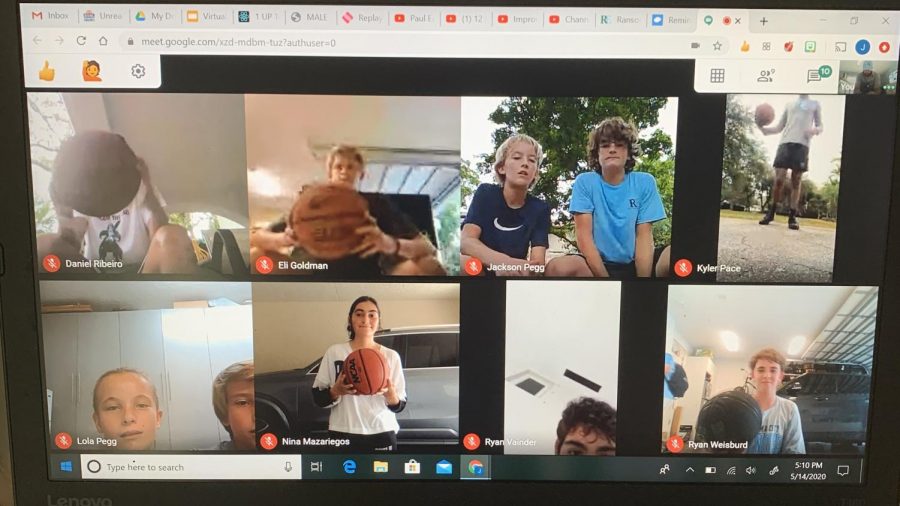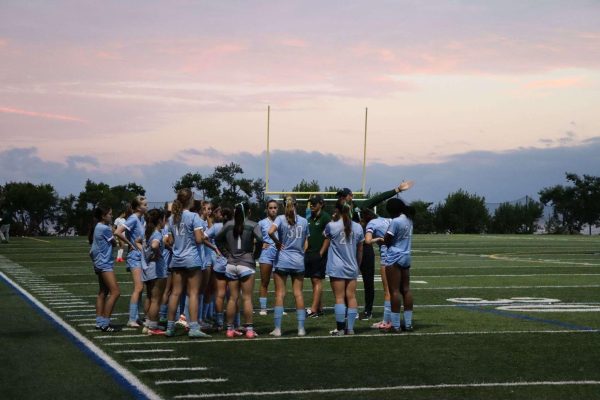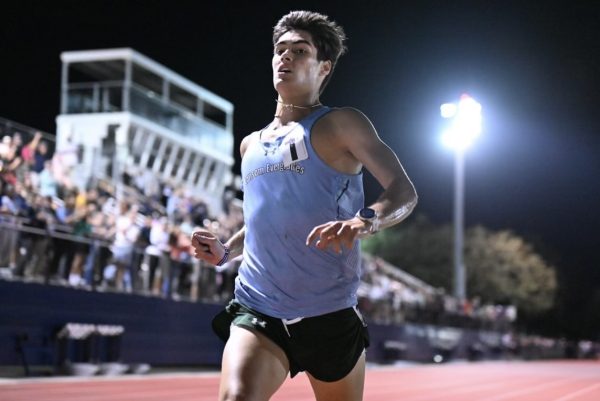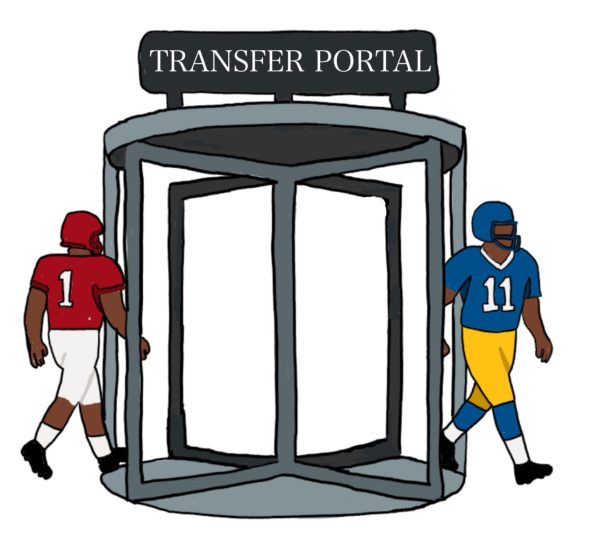During quarantine, athletes find a way
RE Basketball players exchanging tricks on Google Meet.
This spring, the Florida High School Athletic Association canceled the remainder of the 2020 spring athletics season in response to the growing COVID-19 pandemic. Spring athletes were devastated by the news that they would not be able to return to play this year. They were also faced with an unprecedented challenge: how exactly does a team keep training when they can no longer meet in person?
RE’s Athletics department adapted quickly, scheduling regular meetings for nearly every team at RE via Google Meet and hosting workouts online, including REboot every morning. But some teams have added their own twists to the new digital format, finding creative ways for athletes to grow their skills both on and off the field.
Everything is about building off of this past season’s success for the boys varsity basketball team. The team finished the 2019-20 season with a 26-5 record, ultimately ending with a devastating loss to Westminster Christian in the regional quarterfinal game.
The team’s first priority is improving as athletes. “Coach [Victoria] Druehl and Coach [Scott] Berman have been doing a great job preparing us for the big season up ahead with a variety of lifts and drills to improve our game daily,” said Daniel Ribeiro ‘23.
Additionally, Coach Joe Supple has organized training sessions for players throughout the RE basketball program to improve their skills. “Coach [Supple] has been running some great sessions,” Ribeiro said. “He makes us work extremely hard every workout and helps us get better even when times can be rough.”
“I hope it gives [the players] some sense of normalcy and the positive social interaction that we are all missing in our lives today,” Coach Supple added. “Obviously, we want everyone to improve their individual skills, but right now this serves a much bigger purpose.”
Some players have decided to take their competition virtual, too, creating an NBA 2K tournament among members of the team. “It is an idea Coach Berman brought up in a virtual team meeting,” Ribeiro, the tournament commissioner, said. “It has been a really great way for the program to build chemistry and have some fun together even when we cannot see each other in person.”
The boys varsity lacrosse team echoed that same message of supporting team culture and boosting morale in this time of isolation. “I think this is really a time where we all find out what our team culture truly is, and how strong it is,” Coach Chazz Woodson said.
Coach Woodson has added his own twists to weekly team Google Meet calls in an effort to boost morale. Players compete virtually in rock paper scissors, submit quotes and jokes of the day, and even got a chance to speak with professional lacrosse legend Kyle Harrison. Topics of conversation with Harrison ranged from improving lacrosse skills to universal life lessons.
“To be able to casually speak with a future Hall of Fame player who has had major success at every level of the game, and has been instrumental in the growth of the game, is a special opportunity for any young player, especially here in South Florida where the game is just beginning to take off,” Coach Woodson said.
In addition to the weekly virtual meetings, Coach Woodson has been organizing several competitive events for the team to participate in. “We are competing in a wall ball competition (via individual player video submissions) and considering another one or two as well,” Coach Woodson said.
The purpose of organizing these competitions is twofold. “Individually, [the competitions] allow our players to have a short term end goal in mind when they train,” Coach Woodson said. “From a team standpoint, it gives us something to be excited about. Sports would not be sports without competition. So in a season cut short, this allows us to reclaim a bit of what was lost.”
The boys varsity lacrosse team is not the only lacrosse team on campus finding creative ways to keep in touch and continue playing the sport; the girls varsity lacrosse team has taken more of a personalized approach.
“We have [each] been assigned a day of the week where we text into the group chat a challenge for the team to do,” Georgia Crosby ‘21 said.
Challenges have included activities such as drawing and arts and crafts, learning a stick trick, or even more seemingly mundane tasks like having a family dinner or playing board games. The coaching staff has been sending workouts and drills for the players to do as well.
The girls lacrosse team has taken on another project aside from the daily challenges: creating a video in which each player does a trick and then passes the ball to another player in a different frame. “We saw so many challenges online and other teams doing similar compilations,” Crosby said, “so we got inspired and thought it would be really cute and fun.”
Challenges have also kept the sailing team motivated, at a time when even heading out on the water would violate social distancing rules. “We are all doing a challenge right now where we all have to send in a sailing-related video,” Claire Holzman ‘21 said. “Our coach is making prizes for it, so it is just a fun way to keep in touch.”
Beyond the challenge, “[the team] has video conferences once a week,” Holzman added. “We talk about sailing a little bit, but it is mostly so we can just see each other.”
RE athletes and faculty emphasized the need to stay connected in whatever ways they can, not just for the sake of camaraderie but for the sake of maintaining physical fitness in a time defined by long periods spent sitting in front of screens.
“Once we inevitably resume training, not only will it be an easier transition on the body, but it will help decrease the susceptibility to injury upon returning to play,” Coach Druehl said. “All students should be remaining physically active. Physical activity stimulates the brain and improves mental health. During this time, we need physical activity more than ever — not just for the body, but for the mind.”
Druehl stressed the mental and physical importance of maintaining a stable routine. “When life gets turned upside down, the first thing that is usually affected is our routines,” Coach Druehl said. “When our routines are thrown off, we tend to develop negative habits that steer us off course. Naturally, we thrive off of routines, our body craves them. You may not realize it, but your body likes going to bed and waking up at relatively the same time every day.”
How does one maintain routines during these difficult and unprecedented times?
“Try to emulate as best you can the same routine as when we were on campus,” Coach Druehl added. “Get up and walk between classes because that is what you used to do. Eat breakfast, lunch, and dinner when you typically would. If you used to have after school activities, fill that time with exercise or skill work. And lastly, try to set a similar bedtime for yourself. By doing all of these things, our transition back to campus will be a bit easier.”






